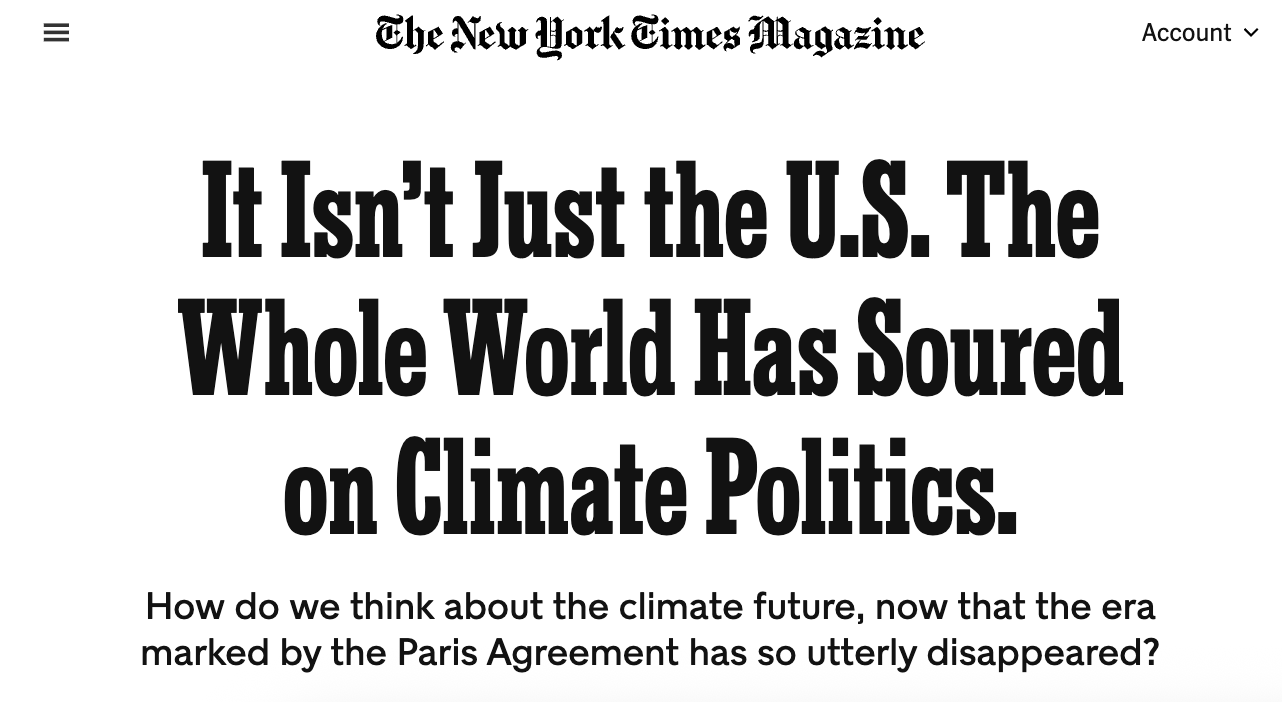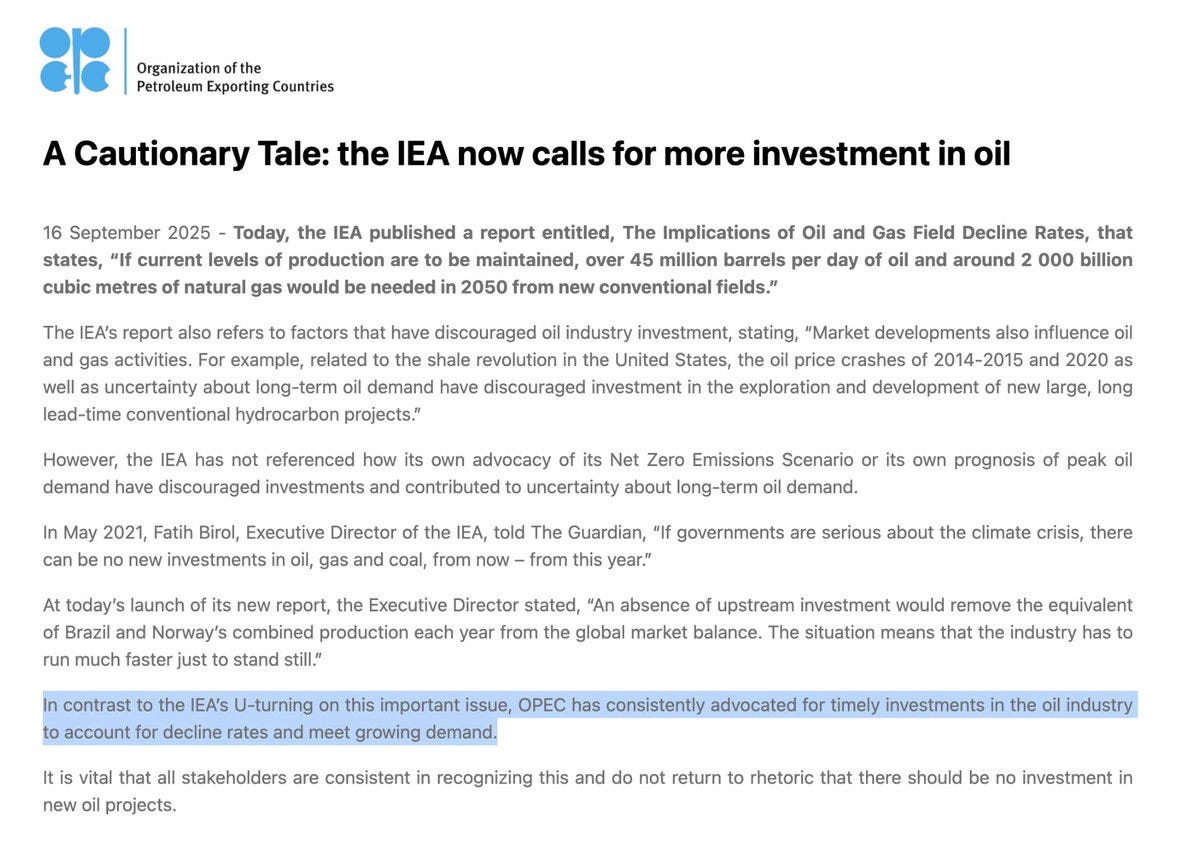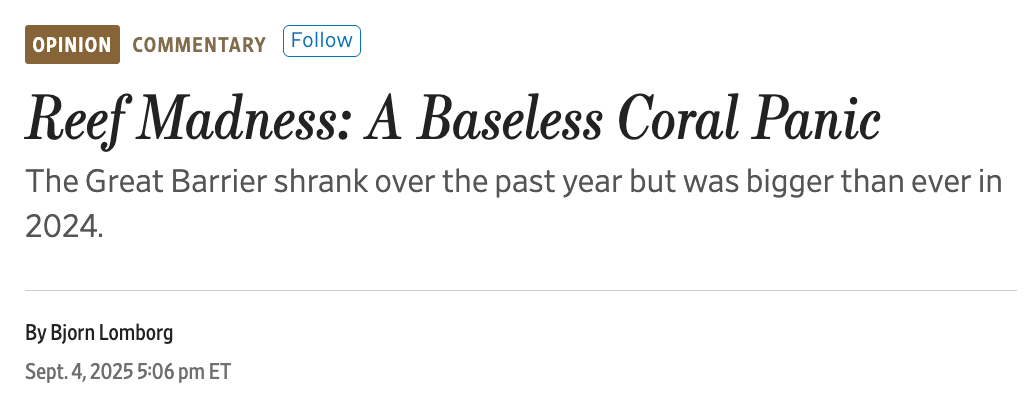Talking points roundup: rising electricity prices, the National Academies' climate "report," China's new coal plants, and more
Also: why nuclear power is expensive, recent skepticism toward climate catastrophism, why “green” activists oppose nuclear, and the International (Anti-)Energy Agency’s hypocrisy.
Here are some of my favorite talking points I’ve created or shared this week.
On what’s really causing rising electricity prices
This terrible WSJ piece blames rising electricity bills on recent Republican cuts to solar/wind subsidies.
This is absurd because:
1) These cuts don’t even take effect until 2027!
2) The recent price increases all occurred while massive solar/wind subsidies were in place.
On the National Academy of Sciences’ new “report” on GHGs
The prestigious National Academies’ new “report” on GHGs from fossil fuels is trash, as proven by its admission that it:
1. “does not consider the potential of adaptation measures”
2. “did not take up the question of whether proposed regulations impose an undue economic burden”
On China’s new coal plants
Revealing fact: China has over 300 planned new coal plants in the pipeline, each designed to last 40+ years.
The idea that China is replacing coal with solar/wind is a fantasy.
On why nuclear power is expensive
Many opponents of nuclear claim it’s inherently super-expensive.
But the real reason nuclear is expensive is because of irrational anti-nuclear policies, including policies that let virtually anyone file lawsuits against plants—delaying them, in this case, for nearly 5 years!
On recent skepticism toward “climate politics”
Why has the world “soured on climate politics”?
Because the catastrophe they keep promising hasn’t materialized (we have lower climate-related disaster deaths than ever) and because their anti-fossil-fuel policies themselves have been catastrophic.
On why “green” activists oppose nuclear
Why do so many “green” activists oppose emissions-free nuclear power?
Because insofar as your top goal is being “green,” which literally means minimizing human impact on Earth, you will be against any prolific source of power (which necessarily involves human impact on Earth).
On the International (Anti-)Energy Agency’s hypocrisy
After years of telling countries to keep their oil in the ground, the International (Anti-)Energy Agency now calls for more oil investment with a straight face.
OPEC, which brags about having “consistently advocated for timely investment in oil,” looks noble by comparison!
On the Great Barrier Reef
Climate catastrophists love to talk about how terrible the Great Barrier Reef is supposedly doing due to rising CO2 levels.
In reality, the Reef is in good shape today compared to when we started observing it in the '80s. (And many factors contribute to its rapid ups and downs.)
Questions about this article? Ask AlexAI, my chatbot for energy and climate answers:
Popular links
EnergyTalkingPoints.com: Hundreds of concise, powerful, well-referenced talking points on energy, environmental, and climate issues.
My new book Fossil Future: Why Global Human Flourishing Requires More Oil, Coal, and Natural Gas—Not Less.
“Energy Talking Points by Alex Epstein” is my free Substack newsletter designed to give as many people as possible access to concise, powerful, well-referenced talking points on the latest energy, environmental, and climate issues from a pro-human, pro-energy perspective.









Thanks, Alex, for the excellent collage of the state of the various climate and energy debates.
I really like the way you've punctured the phony science and arguments of the climate activists, and you've done it so succinctly and with very few words. Actually, I'm tempted to call your post a masterpiece.
This statement on the evil opposition to nuclear is profound: "as your top goal is being “green, which literally means minimizing human impact on Earth, you will be against any prolific source of power".
I might use it in a post I'm working on - "The Culture of Death".